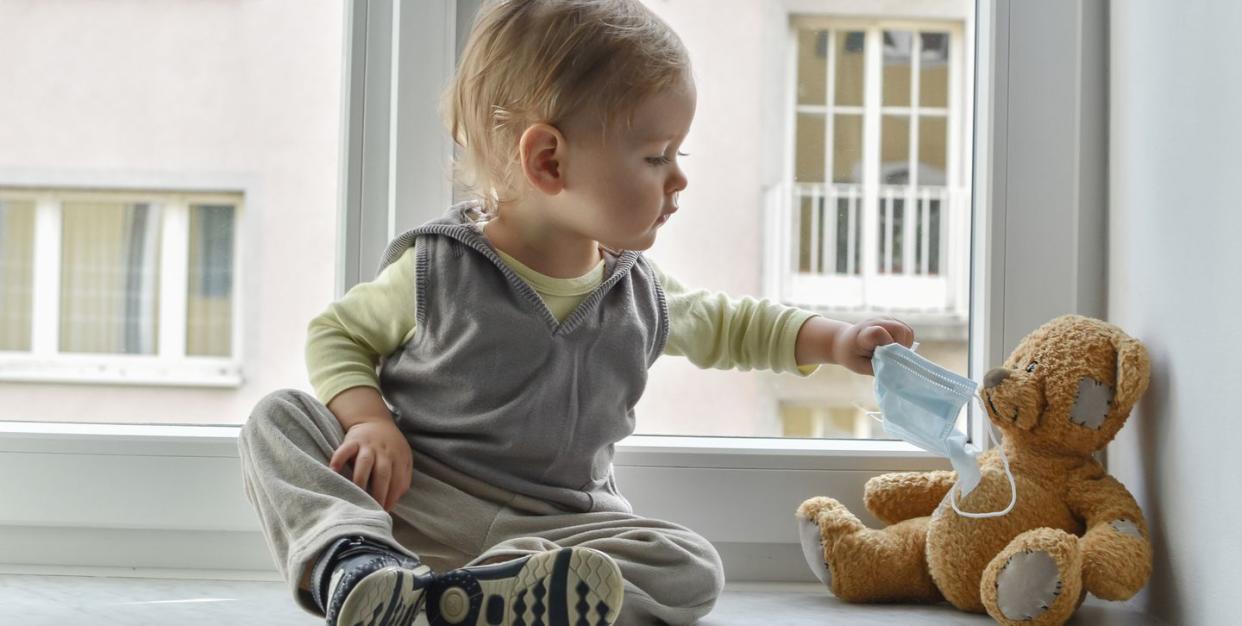Can kids catch coronavirus? Evreything we know so far

With the daily updates and important guidelines to adhere to, it’s hard not to think about coronavirus at the moment. If you’re a parent, as well as coming up with ways to keep your children occupied during the lockdown and school closures, it’s only natural that you may feel anxious about their safety, and what might happen if they start showing symptoms.
We spoke with Dr Andrew Thornber, Chief Medical Officer at Now Patient, to find out more about how Covid-19 is affecting children, and how you can best keep them safe.
What is coronavirus?
Covid-19 is a relatively new, flu-like illness, which affects the lungs and airways. Caused by a virus called coronavirus, the most common symptoms are:
A new, continuous cough
A fever (high temperature)
For most people, this is a mild to moderate illness, and they will recover well from it. People over the age of 70, along with those who have underlying health conditions, are the most vulnerable and are most susceptible to catching the disease.
How coronavirus affects children
While there are still a lot of unknowns about the virus, and research is ongoing, based on current reports and evidence, Covid-19 affects children more mildly. However, children can still catch it and transmit it, even if they have no symptoms.
Coronavirus symptoms in children
According to the Centre of Disease Control (CDC), symptoms of Covid-19 are very much the same in children as in adults. However, they will likely be milder. Some children have also experienced:
Vomiting
Diarrhoea
Children with underlying health conditions
Additional research is needed into whether children with underlying health conditions, such as asthma, are more at risk.
If your child has asthma, ensure they are up to date with their medication and are taking it at regular intervals (if required).
If your child may be vulnerable due to another underlying health condition, it’s important to speak with your healthcare team and specialists, to get advice about their on-going treatment and management going forward.
What to do if you think your child may have coronavirus
If you suspect your child may have Covid-19, it’s important to follow the same advice as is given to adults:
Do not go to your GP or hospital.
Stay at home and self-isolate yourself and your child. Any family members who have been in contact with the child must also self-isolate for a 14-day period.
Ensure your child stays well hydrated.
If your child feels unwell, you can give them paracetamol (follow dosage instructions on the medication).
If symptoms persist or get worse, visit NHS 111 online for advice.
Protecting your child from coronavirus
The best way to protect your child from contracting Covid-19 is to strictly follow the advice given by the Government and the NHS on social distancing:
Stay at home (if you are a key worker, or if your child has been identified as vulnerable, they may continue going to school).
Only go out for exercise once a day, alone or with immediate family members (those that you live with).
Do not take your children to parks, and don’t allow them to meet up with their friends either at their homes or outside.
When you’re out and about, stick to the social distancing rule of staying at least 2m away from others.
If you need to visit a supermarket or pharmacy, do not bring your child with you if at all possible.
Make sure both you and your child wash your hands regularly with soap and water, for 20 seconds.
It’s important to follow this advice, not only to keep your child safe, but also to keep vulnerable people in your community (and beyond) safe. Because children may display mild symptoms (or even no symptoms at all), they may pass on the illness to others if they go outside, infecting someone else without even realising it.
Children and grandparents
While it feels difficult, it’s important that you do not let your child spend time with their grandparents or other older relatives – you must only have physical contact with your immediate family (those who you live with). This is because their grandparents will possibly be in the age bracket of people who are the most vulnerable. Sticking to phone calls and FaceTime will ensure more people get through this difficult period.
Last updated: 26-03-2020
You Might Also Like


